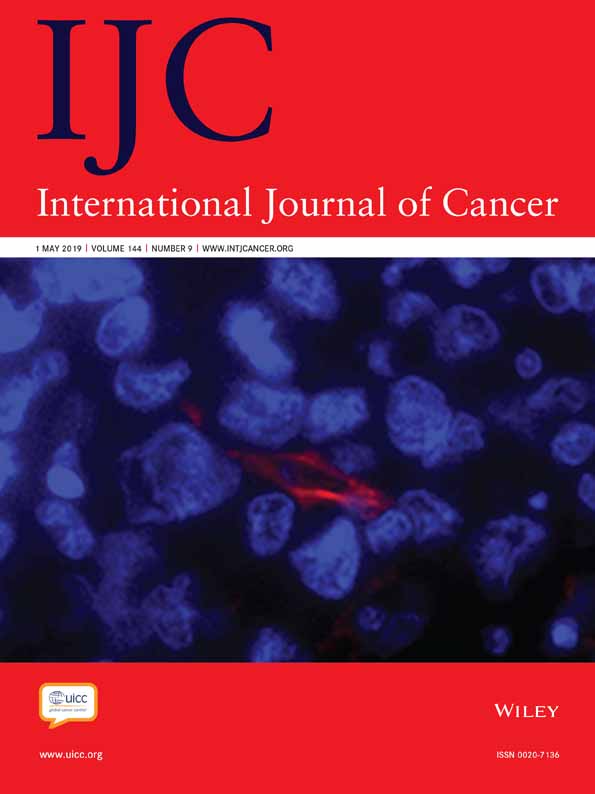Inhibition of Ca2+-activated chloride channel ANO1 suppresses ovarian cancer through inactivating PI3K/Akt signaling
Abstract
Most common ovarian cancers are epithelial carcinoma in which the etiology for carcinogenesis remains elusive. ANO1/TMEM16A, a member of Ca2+-activated Cl− channels (CaCCs), has been demonstrated to promote epithelium-originated cancers and whether it plays a role in the pathogenesis of ovarian cancer is unknown. In our study we found that ANO1 proteins were overexpressed in human epithelial ovarian cancer cells and tissue samples. ANO1 protein upregulation was correlated with the clinical FIGO (International Federation of Gynecology and Obstetrics) staging and poor grade in ovarian cancer tissues. Interestingly, the upregulation of ANO1 gene expression was also detected in the peripheral blood mononuclear cells (PBMCs) from preoperative patients with ovarian tumors, and the down-regulation of ANO1 in the PBMCs from postoperative patients. Silencing of ANO1 inhibited proliferation and invasion of ovarian cancer cells. Mechanistically, ANO1 knockdown attenuated phosphorylation of PI3K/Akt, and inhibition of PI3K/Akt signaling by specific inhibitor LY294002 resulted in suppression of ovarian cancer cells growth promoted by ANO1 expression. Furthermore, intratumoral injection of ANO1 siRNA suppressed subcutaneous xenograft tumor growth in nude mice implanted with ovarian cancer SKOV3 cells. Taken together, our findings demonstrate that ANO1 overexpression is involved in the pathogenesis of human epithelial ovarian cancer. Inhibition of ANO1 upregulation or inactivating PI3K/Akt signaling may have therapeutic potential for epithelial ovarian cancer, and the detection of ANO1 expression level in PBMCs from patients may also serve as a biomarker for diagnosis and prognosis of epithelial ovarian cancers.
Abstract
What's new?
While ovarian epithelial carcinoma is a leading cause of cancer death in women, little is known about its etiology. Here, anoctamin-1 (ANO1) proteins, which function as voltage-sensitive calcium-activated chloride channels, were found to be overexpressed in human epithelial ovarian cancer cells and tissues. In preoperative patients with ovarian tumors, ANO1 gene overexpression was detected in peripheral blood mononuclear cells. Meanwhile, ANO1 silencing in epithelial ovarian cancer cell lines inhibited proliferation and invasion and, in xenografts, suppressed subcutaneous tumor growth. ANO1 expression is a promising prognostic and diagnostic biomarker for epithelial ovarian cancer, and its inhibition therapeutically relevant for the disease.




